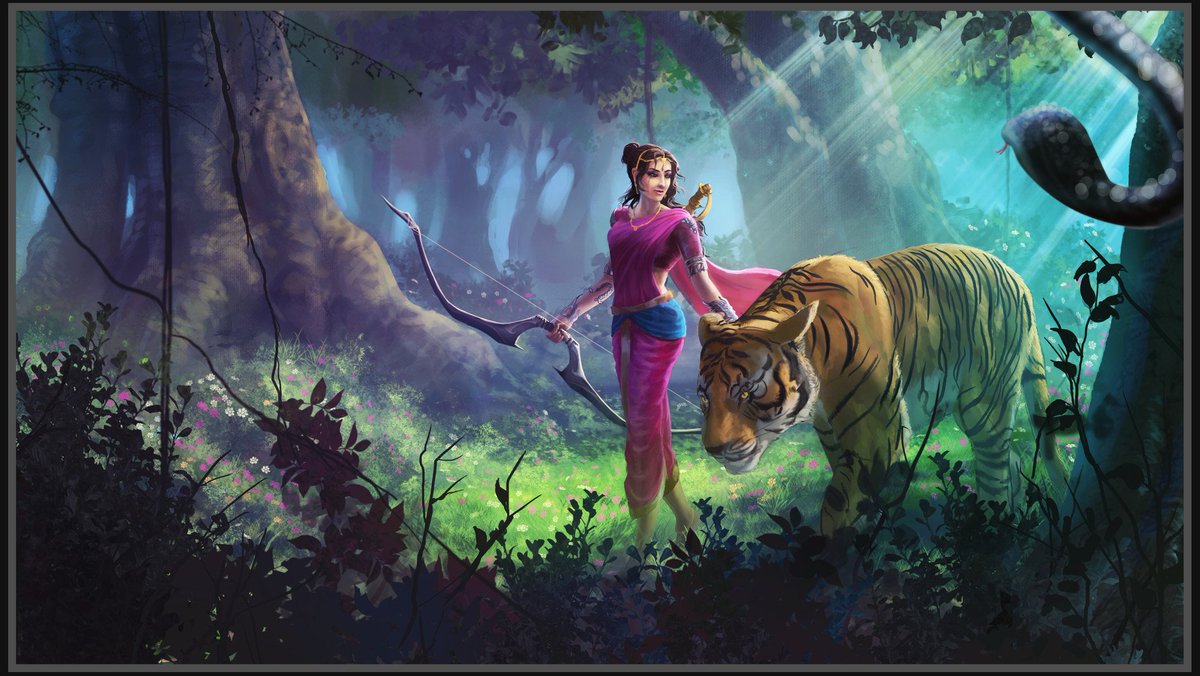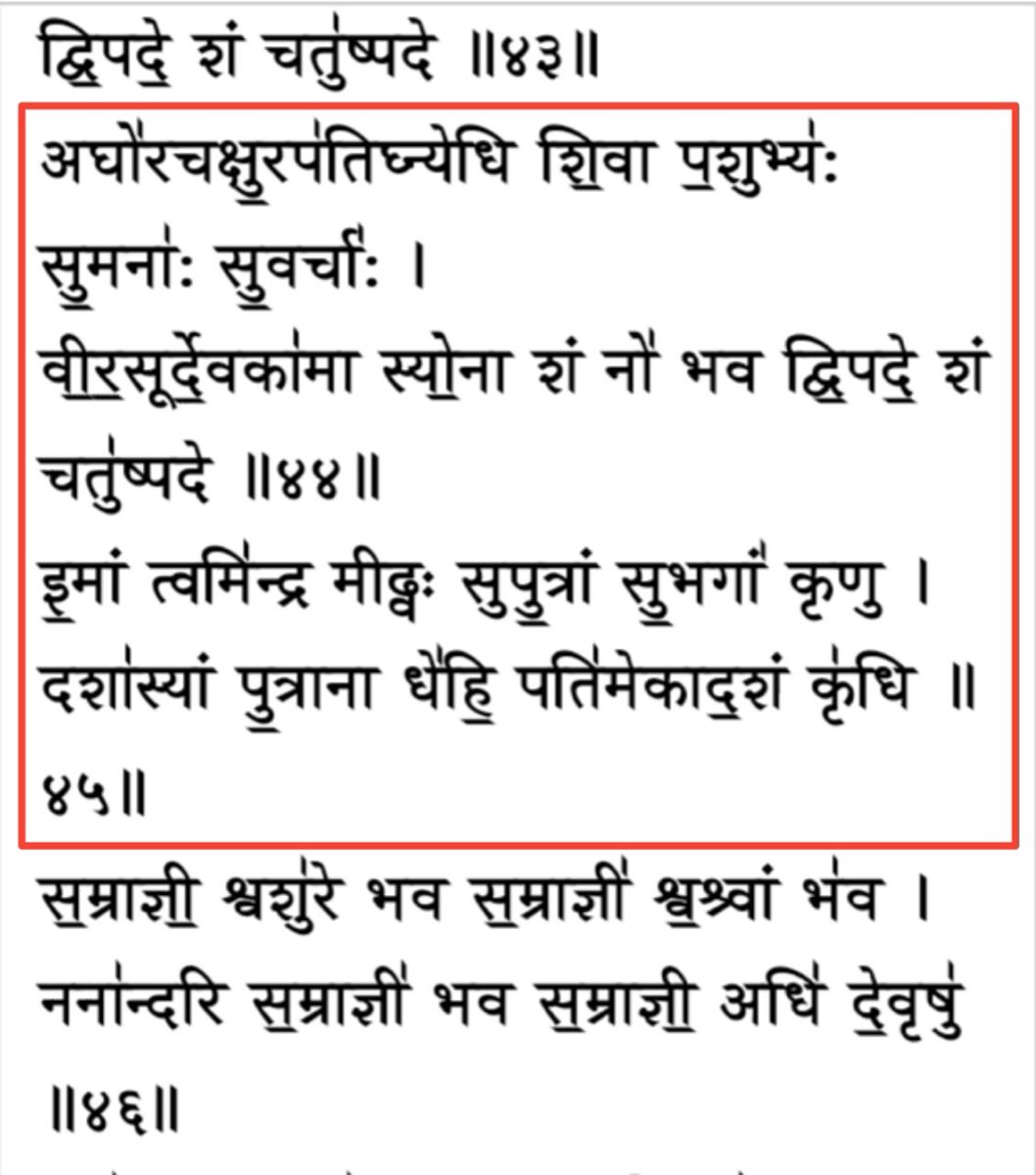Victory In Defeat (Brihadaranyaka Upanishad)
Once Janaka, the emperor of Videha, performed a Brahmayajna. Janaka wished to know which of the brahmins was the most erudite Vedic scholar. So he confined a thousand cows in a pen and fastened on the horns of each ten padas of gold.
Once Janaka, the emperor of Videha, performed a Brahmayajna. Janaka wished to know which of the brahmins was the most erudite Vedic scholar. So he confined a thousand cows in a pen and fastened on the horns of each ten padas of gold.

None of the brahmins dared. Then Yajnavalkya said to one of his pupils: "Dear Samsrava, drive these cows home." Taking the command from his guru, he drove the cows away.
The brahmins were furious and challenged Yajnavalkya for a debating relating the Vedas.
The brahmins were furious and challenged Yajnavalkya for a debating relating the Vedas.
Many illustrous sages like Asvala, Artabhaga, Bhujyu, Ushasta, Uddalaka challenges him. Yajnavalkya answers all their questions and defeats them in the debate. Among them was the women sage Gargi, the daughter of Vachaknu, who is wise and well versed in Vedas.
Addressing the assembly, Gargi said, “Revered Brahmins, I shall ask Yajnavalkya two questions. If he is able to answer them, no one among you can ever defeat him. He will be the great expounder of the truth of Brahman.”
Yajnavalkya said, “Ask, O Gargi.”
Gargi said, “Yajnavalkya, that which they say is above heaven and below the earth, which is between heaven and earth as well, and which was, is, and shall be– tell me, in what is it woven, warp and woof?
Gargi said, “Yajnavalkya, that which they say is above heaven and below the earth, which is between heaven and earth as well, and which was, is, and shall be– tell me, in what is it woven, warp and woof?
Yajnavalkya said, “That of which they say, O Gargi, that it is above heaven and below the earth, which is between heaven and earth as well, and which was, is, and shall be–that is woven, warp and woof, is the ether. “Ether (Akasha) is the subtlest element.
So subtle that it is often indistinguishable from Consciousness. Without it nothing can exist. Yet there is more”.
Gargi said, “Thou hast answered my first question. I bow to thee, O Yajnavalkya. Be ready now to answer my second question.”
Yajnavalkya said, “Ask, O Gargi.”
Gargi said, “Thou hast answered my first question. I bow to thee, O Yajnavalkya. Be ready now to answer my second question.”
Yajnavalkya said, “Ask, O Gargi.”
Gargi said, “In whom is that ether woven, warp and woof?”
Yajnavalkya replied, “The seers, O Gargi, call him Akshara – the Immutable and Imperishable Reality. He is neither gross nor fine, neither short nor long, neither hot nor cold, neither light nor dark,
Yajnavalkya replied, “The seers, O Gargi, call him Akshara – the Immutable and Imperishable Reality. He is neither gross nor fine, neither short nor long, neither hot nor cold, neither light nor dark,
neither of the nature of air, nor of the nature of ether. He is without relations He is without taste or smell, without eyes, ears, speech, mind, vigor, breath, mouth. He is without measure; he is without inside or outside. He enjoys nothing; nothing enjoys him.
At the command of that Reality, O Gargi, the sun and moon hold their courses; heaven and earth keep their positions; moments, hours, days and nights, fortnights and months, seasons and years–all follow their paths; rivers issuing from the snowy mountains flow on, some eastward,
some westward, others in other directions.’
He, O Gargi, who in this world, without knowing this Reality, offers oblations, performs sacrifices, practices austerities, even though for many thousands of years, gains little: his offerings and practices are perishable.
He, O Gargi, who in this world, without knowing this Reality, offers oblations, performs sacrifices, practices austerities, even though for many thousands of years, gains little: his offerings and practices are perishable.
He, O Gargi, who departs this life without knowing the Imperishable, is pitiable. But he, O Gargi, who departs this life knowing this, is wise.”
This Reality, O Gargi, is unseen but is the seer, is unheard but is the hearer, is unthinkable but is the thinker,
This Reality, O Gargi, is unseen but is the seer, is unheard but is the hearer, is unthinkable but is the thinker,
Is unknown but is the knower. There is no seer but he, there is no hearer but he, there is no thinker but he, there is no knower but he. In Akshara, verily, O Gargi, the ether is woven, warp and woof.
Then said Gargi: Venerable brahmins, you may consider yourselves fortunate if you can get off from him through bowing to him. None of u, I believe, will defeat him in arguments about Brahman. Thus Yajnavalkya comes out as a victor.
But in my views Gargi won even after losing.
But in my views Gargi won even after losing.
• • •
Missing some Tweet in this thread? You can try to
force a refresh








